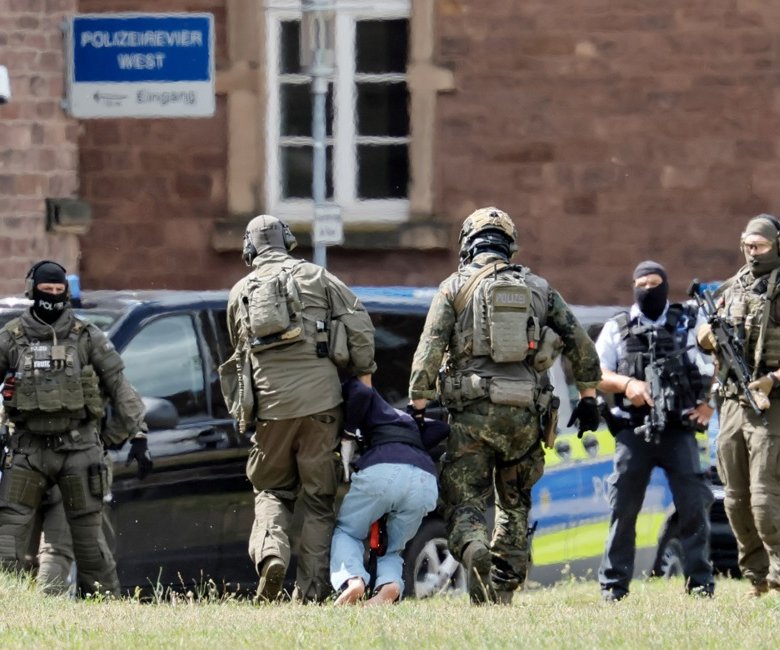DUESSELDORF, Germany — A Syrian national accused of carrying out a deadly knife rampage in the western German town of Solingen appeared in court Tuesday, facing terrorism and murder charges in a case that has reignited public outrage over migrant crime and catalyzed a government crackdown on immigration.

The 27-year-old defendant, Issa al H, stood trial in Duesseldorf, charged with three counts of murder, ten counts of attempted murder, and membership in a foreign terrorist organization. The attack, claimed by the Islamic State group, occurred during a public festival last year and left three people dead and several others severely injured.
Prosecutors allege that al H targeted festival-goers at random, stabbing victims from behind in a frenzied assault that sowed panic and horror among crowds in the city of Solingen, located in Germany’s North Rhine-Westphalia region.
Appearing in a blue jumpsuit, the defendant sat in silence for much of the proceedings, his head bowed. In a statement read by his attorney, he admitted guilt and expressed remorse.
“I have brought heavy guilt upon myself,” al H said through his lawyer, offering a formal apology to the victims’ families and stating he was ready to accept his punishment.
However, he declined to address allegations that he carried out the attack in coordination with Islamic State, leaving open questions about the degree of terrorist planning involved. If convicted on all counts, he faces life imprisonment, Germany’s maximum sentence.
The case has become a flashpoint in Germany’s immigration debate, surfacing at a politically volatile moment. The February federal elections, held in the aftermath of the Solingen attack, saw a decisive victory for conservatives led by Friedrich Merz, a staunch critic of Germany’s liberal refugee policies.
Merz’s new coalition government, which assumed office earlier this month, has since pledged strict border controls, an expansion of deportations to countries like Syria and Afghanistan, and heightened scrutiny of asylum seekers with criminal records.

The Solingen stabbing was widely cited during the campaign as an example of what conservatives described as the “security risks” of unchecked migration. The public response intensified calls for tighter asylum regulations and stricter integration policies.
Interior ministry officials have confirmed that Germany has closed its borders to undocumented migrants and is now exploring diplomatic pathways to resume deportations to conflict zones, including Syria — a controversial shift in German policy.
The Solingen case follows a series of high-profile violent incidents involving migrants that have added fuel to anti-immigration sentiment, with far-right parties also leveraging the narrative to expand their influence.
While the defense has acknowledged al H’s role in the killings, his connection to Islamic State — and whether the group directed or inspired the attack — remains under judicial review. Germany’s domestic intelligence agency has warned of an uptick in lone-wolf attacks linked to radicalized individuals inspired by jihadist propaganda.
As the trial unfolds, it is expected to shape future debates on Germany’s migration policy, national security, and the legal mechanisms in place to detect and deter extremist threats within the refugee population.



